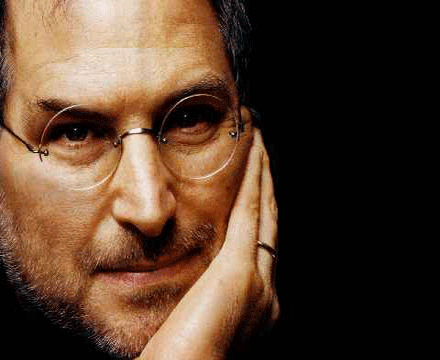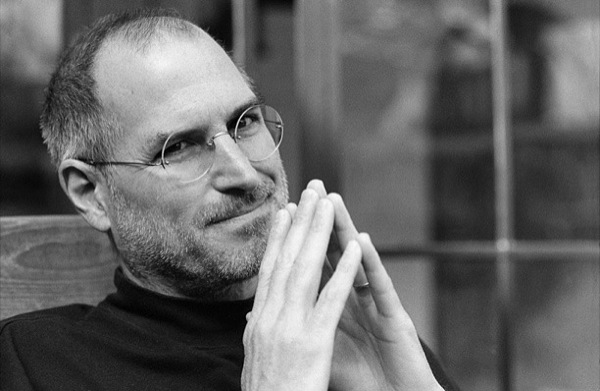Rabbi Alvin Reines, professor of philosophy at the Hebrew Union College in Cincinnati, Ohio from 1958 until his death in 2004, taught that religion exists because we realize that we are each destined to die. Because our life is finite, with a beginning and an end, we have a need to make sense of our existence.
Reines wrote: “Religion is the human person’s response to the conflict of finitude. Stated more fully: (it) is the human person’s response to the psychic conflict produced by the clash between the awareness of finity and… the passionate desire not to be finite… The ideal purpose of a religion is to provide a response… to resolve the conflict and…. attain a state of ultimate meaningful existence.”

Rabbi Alvin Reines
This is our charge as human beings: To find “ultimate meaningful existence” during the limited time we have here on Earth.
This is a sentiment which has been broadcast across the world all over the media for the past few days. On October 5, just four days ago, Steve Jobs, co-founder, chairman, and CEO of Apple Inc., as well as former chief executive of Pixar Animation Studios, passed away at the young age of 56, after a seven year battle with pancreatic cancer.
I personally never met Mr. Jobs. But his impact on me and on millions has been profound. My first personal computer was the Apple II+ back in the early 80’s. I saw my first Macintosh in our high school’s library, and I was blown away by its innovative interface. I’ve owned several Mac computers, laptops, several iPods, and two iPhones. Even if you have never used a Mac computer, you may still own and use an iPod for your entire music collection, or connect on an iPhone.

Steve Jobs
The beauty of Mr. Jobs’ designs, the elegance and demand for greatness in all of the products his company produced, is still unmatched in the industry. He was an innovator, an inventor, a visionary and an artist. He was uncompromising and driven—a perfectionist. More Picasso than Edison, Jobs could envision a future that was “insanely great,” and he made it his life’s mission to “think different.”
The world is mourning his loss because he gave us a digital age which feels more human than machine. His products were all designed not as computers as much as interfaces to new opportunities and new ways of experiencing the world, whether through the printed word, music, pictures, movies… and he made it simple and unobtrusive.
But more than that, Steve Jobs gave the world some very real and relevant life lessons. Around the internet, people are sending one another a video of Mr. Jobs giving the commencement address at Stanford University in 2005. During his address, he told the graduating class the following:
When I was 17, I read a quote that went something like: “If you live each day as if it was your last, someday you’ll most certainly be right.” It made an impression on me, and since then, for the past 33 years, I have looked in the mirror every morning and asked myself: “If today were the last day of my life, would I want to do what I am about to do today?” And whenever the answer has been “No” for too many days in a row, I know I need to change something.
He then went on to talk about his diagnosis of cancer, about how it put things into perspective for him even more. Of his facing death, he said:
No one wants to die. Even people who want to go to heaven don’t want to die to get there. And yet death is the destination we all share. No one has ever escaped it. And that is as it should be, because Death is very likely the single best invention of Life. It is Life’s change agent. It clears out the old to make way for the new. Right now the new is you, but someday not too long from now, you will gradually become the old and be cleared away. Sorry to be so dramatic, but it is quite true.
Your time is limited, so don’t waste it living someone else’s life. Don’t be trapped by dogma — which is living with the results of other people’s thinking. Don’t let the noise of others’ opinions drown out your own inner voice. And most important, have the courage to follow your heart and intuition. They somehow already know what you truly want to become. Everything else is secondary.
Mr. Jobs lived his life constantly trying to improve himself and improve his work.
How many of us can say the same?
Last night, Rabbi Weiner charged us to re-prioritize our lives, to ensure that the people and things most valued to us would be front and center in our hearts and minds. Death is a great reminder that if we really want to not live a life of regret and diminishing returns, we need to start now.
Today.
The single-most tragic thing about Mr. Jobs’ death is that he only had 56 years with our human family—56 years to share his talents, 56 years of love and friendship. Would we all live to 120 as did Moses our Teacher! But our time is but lent to us, and some pass earlier than others. And knowing that each day—each moment—is precious, Mr. Jobs made sure he embraced all the time he had towards realizing his grand vision.
Most of us this afternoon are here to remember a loved one who has gone on to life eternal. We are saddened at their loss, whether last week or decades ago: A cherished father or mother, who raised a family of responsible and self-sufficient children; an honored grandmother or grandfather, who gave unconditional and limitless love in many forms; a good friend and mentor who made a profound impact; a brother or sister, who was steadfast at our side when no one else was there; a partner or spouse, whose affections, friendship, and warmth gave us hope and strength; a child or grandchild, taken away from the world too soon.
The point is, any time death comes, it comes too soon. The octogenarian has wisdom to offer, but still much to learn. The adolescent who thinks he or she knows everything already, has so much more to experience. Each of us can learn more, grow more, love more.
If the lives of our loved ones are to truly be a blessing, we must use this hour of Yizkor, of remembrance and memorial, and reflect on all that was good and enduring in their lives, and ensure that those cherished values are perpetuated to the next generation, and out into the world. And when we leave this space together, after having joined as one family in mourning, leaning on one another for support, we need to live each day as a living tribute to those who have gone. This doesn’t mean dwelling in sorrow for what we have lost, but rather taking heart that our loved ones gave us the best of themselves, and have inspired us to become better, and live our lives more fully.
We are saddened by loss. Living our lives as they might have dreamed of doing will encourage us. An indelible impression was left on our hearts. And our hearts beat more fully with their memory.
On the Apple website is a simple picture of Steve Jobs. If you click on it, a simple message appears:
Apple has lost a visionary and creative genius, and the world has lost an amazing human being. Those of us who have been fortunate enough to know and work with Steve have lost a dear friend and an inspiring mentor. Steve leaves behind a company that only he could have built, and his spirit will forever be the foundation of Apple.
Our loved ones are our foundation. They were “amazing human beings” to us. When we remember them, our foundation grows ever stronger. And we honor them when we not only recall their memory, but when we embrace that memory, allowing it to inspire us to be better people.
On this Yom Kippur afternoon, let us try to find some comfort and solace in the face of loss. Let us be emboldened by the legacy left to us by our dear ones. And Let us find healing knowing that our loved one’s memory will endure as long as we remember.
Amen.


